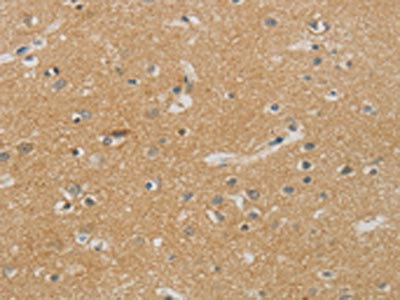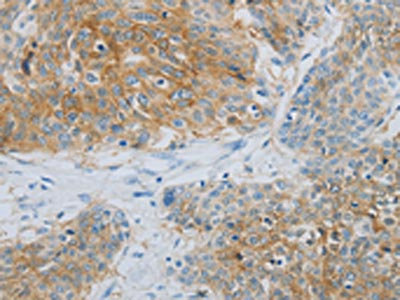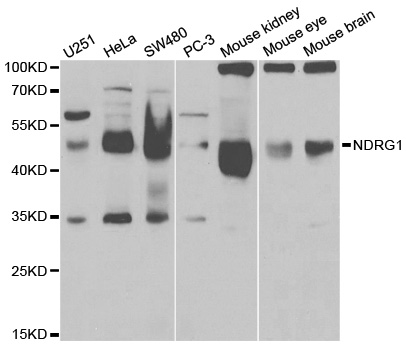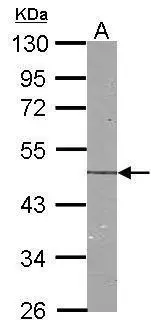
The image on the left is immunohistochemistry of paraffin-embedded Human brain tissue using CSB-PA189423(NDRG1 Antibody) at dilution 1/70, on the right is treated with synthetic peptide. (Original magnification: x200)
NDRG1 Antibody
CSB-PA189423
ApplicationsWestern Blot, ELISA, ImmunoHistoChemistry
Product group Antibodies
ReactivityHuman, Mouse, Rat
TargetNDRG1
Overview
- SupplierCusabio
- Product NameNDRG1 Antibody
- Delivery Days Customer20
- ApplicationsWestern Blot, ELISA, ImmunoHistoChemistry
- CertificationResearch Use Only
- ClonalityPolyclonal
- ConjugateUnconjugated
- Gene ID10397
- Target nameNDRG1
- Target descriptionN-myc downstream regulated 1
- Target synonymsCAP43, CMT4D, DRG-1, DRG1, GC4, HMSNL, NDR1, NMSL, PROXY1, RIT42, RTP, TARG1, TDD5, protein NDRG1, N-myc downstream-regulated gene 1 protein, differentiation-related gene 1 protein, nickel-specific induction protein Cap43, protein regulated by oxygen-1, reducing agents and tunicamycin-responsive protein
- HostRabbit
- IsotypeIgG
- Protein IDQ92597
- Protein NameProtein NDRG1
- Scientific DescriptionThis gene is a member of the N-myc downregulated gene family which belongs to the alpha/beta hydrolase superfamily. The protein encoded by this gene is a cytoplasmic protein involved in stress responses, hormone responses, cell growth, and differentiation. The encoded protein is necessary for p53-mediated caspase activation and apoptosis. Mutations in this gene are a cause of Charcot-Marie-Tooth disease type 4D, and expression of this gene may be a prognostic indicator for several types of cancer. Alternatively spliced transcript variants encoding multiple isoforms have been observed for this gene.
- ReactivityHuman, Mouse, Rat
- Storage Instruction-20°C or -80°C
- UNSPSC41116161









